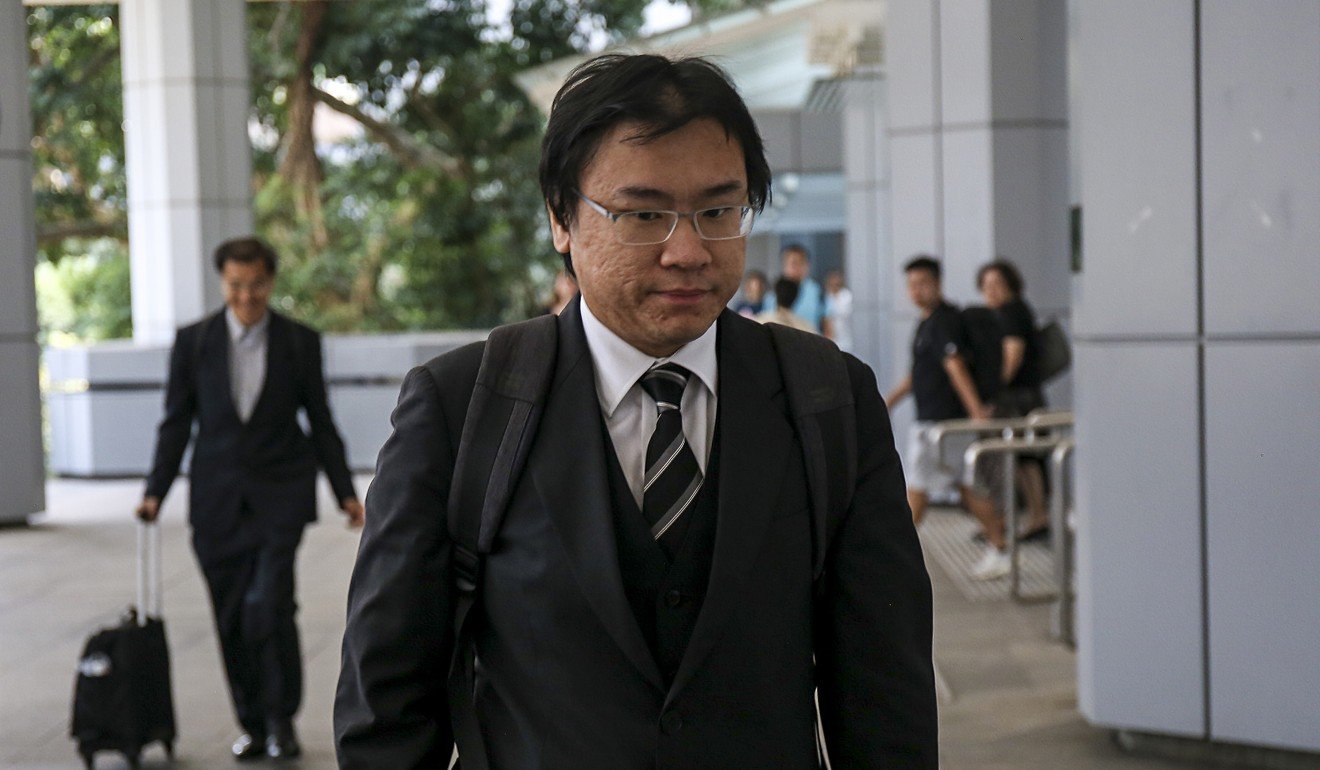Trainee lawyer cleared to practise after Hong Kong justice department accepts anti-police message on his Facebook page was posted by his girlfriend
- Aspiring solicitor Alfred Chu sworn in despite message posted in his name on social media urging ‘rogue cops’ and their families to ‘go to hell’
- High Court admitted Chu but reminds him post was ‘distasteful and hatred-inciting’ and tells him to be more responsible in future

Hong Kong’s top court has cleared a trainee lawyer to practise in the city after he explained to the justice department that an anti-police post on social media was in fact by his girlfriend.
Lawyer-to-be Alfred Chu was sworn in despite accusations he posted a message saying “rogue cops and families go to hell” on his Facebook page.
Chu came under the media spotlight after a letter by the Department of Justice requesting him to explain his actions was leaked online.
On Monday, Chu was admitted to the legal profession at the High Court after the department accepted that it was his girlfriend who had published the offensive phrase under his name “in an impulsive moment”.
The Law Society had also written to the court saying a certificate issued to Chu before the incident confirming his eligibility for admission still stood, after it made inquiries about the offensive message.
In admitting Chu, Mr Justice David Lok Kai-hong said the message was nonetheless “a very distasteful and hatred-inciting statement” which “went well beyond a rational criticism of the work of police”.
“The statement contained a threat, or at the very least a curse, targeting not just police officers but their innocent family members who have nothing to do with their work,” he said.
He reminded Chu to manage his social media account in a careful and responsible manner in future.
Chu did not respond to queries from the media when he left court.
Hong Kong police have been accused of applying excessive force against demonstrators during the anti-government protests that have gripped the city since June.

Triggered by the now-withdrawn extradition bill, protesters are still calling for an independent inquiry into police action, among other demands.
The message in question was posted on Chu’s Facebook page on July 28 – the day 44 people were arrested following a riot on Hong Kong Island after an anti-government rally.
The Department of Justice wrote to Chu on August 20 requesting an explanation – four days before he was originally due to be admitted.
Leona Cheung, acting senior assistant law officer from the justice department, told the court on Monday that Chu had “immediately deleted” the Facebook post before he received the letter from the department. Cheung added that Chu’s girlfriend, who was said to have published the message, had also written to the department to express her remorse for the impulsive act.
Explaining his decision, Lok said the court was in no position to carry out further inquiries to verify the truthfulness of Chu’s defence, though some might question whether he did speak the truth.
That said, he found that the offensive statement should not have been published by “anyone who values mutual respect as a core value of every civilised society”.
This held particularly for Chu, who would in his job be involved in the administration of justice, and his words and actions would inevitably come under public scrutiny, Lok continued.
“There is always mutual respect between [the different people involved in the administration of justice]. Such mutual respect is very much premised on the fact that we recognise [these professionals] have different roles to play and different duties to discharge,” Lok said.
“If one disagrees with the work of and the stance taken by others involved in the administration of justice, one should lodge an objection or complaint and put forward one’s arguments in a professional and rational manner.”
Hong Kong’s court procedures require trainee lawyers to apply to the judiciary for admission to practise in the city. The courts’ judges have the final say on whether an applicant is “fit and proper” to practise law, but the secretary for justice or the Law Society may raise concerns about the applicant’s suitability for the profession.